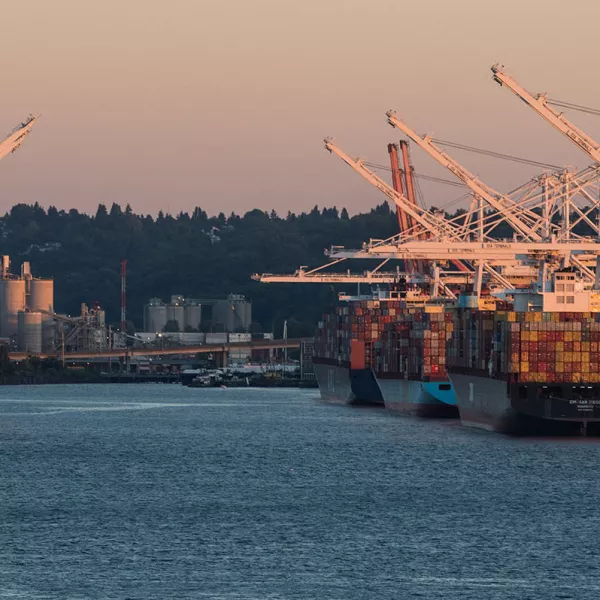When Stefan Kalb, ’07, was studying economics and math at Western, he never spent much time on supply chains. Now, he’s leading a business that optimizes supply chains of thousands of grocery stores across the country.
Kalb is a co-founder and CEO of Shelf Engine, a Seattle company that helps grocery stores manage their inventories of perishable foods.
“We’ll purchase the products you need in the store, pay the vendor and only charge you for what sells,” Kalb says. “For that service, we’ll charge you a fee that’s way less than the waste you currently incur.”
Using machine learning and analytics developed by a team of Ph.D.- level data scientists, Shelf Engine can reduce waste in some categories by 30 to 50 percent, Kalb says. The company grew five times over last year and now controls inventory in more than 3,000 grocery stores, including Kroger, Target and Whole Foods stores. Kalb expects that growth to continue, even as the pandemic goes on disrupting supply chains.
“When we first entered the pandemic, it was an absolute zoo,” Kalb says. “For the grocery industry, the busiest day of the year is the day before Thanksgiving. You literally go for months planning for that. COVID was the equivalent of that happening every day for two weeks straight.”
Each morning, Shelf Engine collects data on tens of thousands of products on shelves in stores around the country. Taking into account current inventories, variable sell-by dates, buying patterns, weather, local events, school schedules and other factors, the company can then generate each store’s daily orders in an hour or two—even timing the orders to keep from having too many delivery trucks on the road at one time.
“Our AI is amazing on forecasting inventory and demand,” Kalb says. “We know what’s in the store better than the store knows what’s in the store.”


